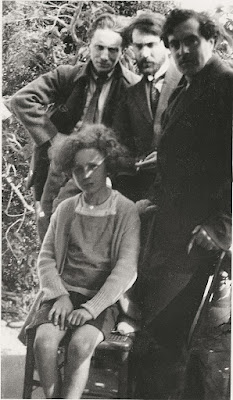Poets of the Great War: Faber & Faber, 2014: Robert Graves, Selected Poems; edited by Michael Longley
Poets of the Great War: Faber & Faber, 2014: Robert Graves, Selected Poems; edited by Michael Longley
Faber have released a set of volumes of the Great War poets to coincide with the centenary of the conflict. World War 1 was fought at a time when the dominance of the moving image was not yet complete hence the plethora of written testaments presented here. The war was also yet more gruesome and extreme since it was industrialised and mechanised and thus different from earlier wars (with perhaps only the Boer War fought around the turn of the century giving the British a foretaste of what was to come). Therefore, the written medium was the most immediate way to record the events that were happening and obviously had none of the fallibility and cumbersome qualities of cameras of that era. There were poets in later wars but the Great War threw up so many disparate voices, clear evidence of the unbelievable psychological destructiveness of the fighting, the evocation of feelings of futility and waste blighting an entire generation.
Robert Graves was born in Wimbledon, south London in 1895. His father came from an Anglo-Irish background and had written some notable lyrics while his mother was from an aristocratic southern German family. The period before WW1 had produced ever-increasing tension between the British and German ruling classes resulting in a series of escalating international incidents and an arms race that was spiralling out of control. Connections between the British and Germans went as far as the most ancient and intimate links of language and culture. However, the German language was older and its intellectual complexity akin to pure mathematics, it being derived from Latin and therefore its propensity for emotion and lyricism often seemed unlikely to English speakers. Nevertheless the German language has a very rich seam of poets, dramatists and authors. There were also many personal connections between the two countries and his family tree was to cause Graves’ difficulties during WW1.
When the war began Graves took a commission in the Royal Welsh Fusiliers. His first volume of poems, Over the Brazier, appeared in 1916 and in this year he also fought in the most important British battle of the war at the River Somme in Picardy, France in July 1916.
The battle was designed initially as an all-out, decisive encounter intended to win the war but when the French position at Verdun became clearer the plan was changed and the Battle of the Somme became a diversion to relieve pressure on the French. Initially the British units only had a supporting role but it became ever clearer that they would bear the brunt of the fighting. Nor were all the British units composed of regular soldiers, in fact these formed the minority of the army. Most of the British army was composed of Kitchener’s conscripts, the ‘pals battalions’ and these were issued rather rigid and inflexible orders since it was not felt they had the initiative that regular soldiers were capable of. In the event this doomed the offensive and only the units from Ireland made any headway since they had decided to disregard their orders and push right up to the enemy trenches. But even the gains made by the Irish troops could not be consolidated since they had lost contact with possible support.
Graves’ own part in the big push at the Somme occurred in the sector at Mametz Wood where a major engagement occured.

Comments